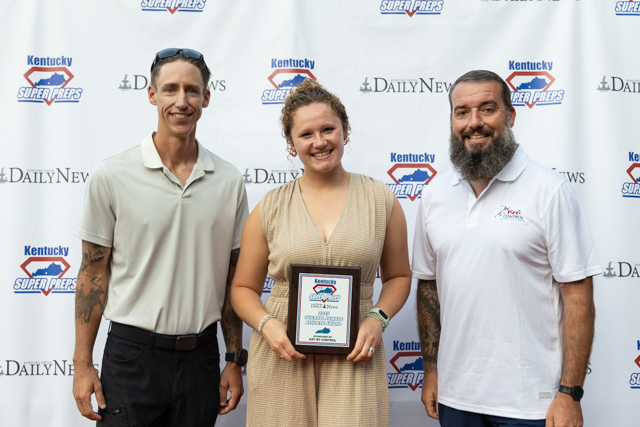Poet penetrates the heart
Published 1:00 am Sunday, August 7, 2016

- sunread_book_holo080716
“Holonym” by Trish Jaggers. Georgetown: Finishing Line Press, 2016. 37 pages, $12.49 (Paperback.)
Some poets, even very good ones, write poems that are easily accessible to regular poetry readers. Some poets, even very good ones, write poems that require serious concentration on the part of even a very experienced reader. Some poets do both. These are my favorite kind.
Trish Jaggers belongs to the latter group. She is one of my (oh, say half a dozen) favorite poets of all time. Her poems reach both aisles – she can knock the reader dead with a very accessible poem like “Neighbors” or stretch the heart and brain right out of your body with a poem like “On the Night They Took Your Life.” I always ask her to read this award-winning poem whenever she is generous with her time to come to my poetry classes. She teaches a full load at Western Kentucky University’s South Campus, along with many other academic and service activities.
I rejoice in the contributions this poet has made to so many learning activities in our academic community. I rejoice in the even, even quality of her poems. There is a depth and complexity to them. Many are as sharp as human pain from a dagger in the heart. Many contain a delirious joy in the natural world that makes me feel apologetic for even the best of Emily Dickinson’s nature poems. Jaggers knows the nitty gritty of nature up close and hard: mud, slime, worms, pond scum, the hard work, the danger. And I know that she knows what a loaded pistol can do and that a tiny drop of red can turn blue to purple.
(Do you know what “Holonym” means? Well, it is sort of the opposite of synecdoche, which means using the part to represent the whole. “Holonym” means using the whole to represent the part, sort of like metonomy. Feel better? Well, I don’t. I sometimes wonder why we are able to teach students anything.)
But “Holonym” means something here. A line from a Yeats’ poem came immediately into my mind: “How can we know the dancer from the dance?” The part becomes the whole; the whole becomes the part, and how can we know the difference? The point, I think, that Yeats is making and that Jaggers is making is that we don’t need to. The beautifully varied subjects of these poems can be a polka, a waltz or the Charleston and the music of poetry that glides through them all is just one big glorious dance.
Listen: Achieving such a wonderful, overarching goal is not done by carelessness. Here, there are none of those desperate adjectives striving to be original; there are almost no adverbs. Jaggers uses rhyme sparingly and then it is likely to be in repeated phrases: “from me, from me, from me.” She makes very good use of the less common forms of rhyme: alliteration, assonance, consonance.
I have quoted almost none of the lines, not even my favorites. In trying to figure out why I did that, I realized that the poems are so seamless that any part of the whole, in this case, cannot represent the whole satisfactorily. I must give you a taste though of one I mentioned earlier. From “Neighbors:”
The tab, when he lifts it,
Sounds like ribs splitting
From the inside.
I didn’t say it was light, just accessible.
All of Jaggers’ poems are free of flowery flourishes, wicked adverbs.
There is no self-centered wallowing and warbling in the shallow waters of the adolescent heart. This is a poet who stands tall, aims straight and penetrates the heart.
— Reviewed by Mary Ellen Miller, WKU English Department.
— “Holonym” author Trish Jaggers will speak from 6 to 7:30 p.m. Thursday at the Warren County Public Library Main Branch. A small workshop will follow her reading. The author will also speak at the Edmonson County Library in Brownsville from 6 to 7:30 p.m. Tuesday.





